International Proxy Parents bazaar helping many students annually
SCORES of students in 17 high schools benefit each year from scholarships awarded by International Proxy Parents (IPP), a non-profit organisation consisting of expatriates, spouses of diplomatic missions staff, and some Jamaican women.
The organisation has raised millions of dollars to help hundreds of students over its 35 years of existence.
Through its annual fund-raising bazaar — which offers authentic items from various countries for sale — the group has been able to assist 40 students each year with payments of auxiliary and examination fees.
Last year, the bazaar raked in over $1 million, and this year the target is set at $1.5 million, according to the event’s chair and IPP
First Vice-President Roma Greenaway.
“Our budget overall is $2.5 million for the year, and that is what we are hoping to get from our fund-raising. From the bazaar last year we made $1.5 million, less expenses, and so our net was $1.163 million. This year I would love to make $2 million so that by the time we finish expenses can be $1.5 million,” she told the Jamaica Observer.
Greenaway explained that the scholarship recipients are usually recommended by guidance counsellors based on academics, need, and social involvement. The students are usually selected in their second year of high school when they have already established a track record of academic performance.
Once the student meets the criteria, the application is taken to the organisation’s education committee for a decision. The scholarship is then awarded up to sixth form.
“Because our scholarship is academic we really don’t want kids who are just wasting funds that somebody else could be making good use of, but we are also looking out for their welfare, so we wouldn’t just necessarily drop them because they have not met academic standard within a given time,” she explained.
According to Greenaway, each child is paired with a mentor who would be responsible for identifying what would be causing non-performance.
She explained that the scholarship amount varies, as it is dependent on the auxiliary fees charged by each school as well as the number of external exams that a student sits.
Greenaway said these scholarships would not be possible were it not for the proceeds from the bazaar.
She explained that when the organisation first started the fund-raiser it was a ‘bring and buy’, but later evolved into an international bazaar as more countries became involved over the years.
This year’s event, which is being held at the Gardens of the Jamaica Pegasus on November 7, provides not only an opportunity for the adults to shop, but is also an educational affair for children.
“It is indeed an international bazaar in that several different countries come together and sell items and cuisine typical of their country. So they might come with decorative pieces, general craft items, and it is also a good time to sample food and wines from different countries,” Greenaway said.
She explained that in the earlier years a lot more countries participated, but like a lot of other entities they, too, have been affected by downsizing.
“Over the years, the challenging times have affected the missions themselves and many of them have downsized, and so they just do not have the human resources to operate a stall at the bazaar,” Greenaway said.
The missions, she pointed out, donate all the proceeds from sales of these items to the organisation.
Explaining how it works, Greenaway said IPP provides the venue and booths, while representatives from the foreign missions bring the items to sell.
“Sometimes even the high commissioners and ambassadors are the ones actually behind the stalls selling,” she said.
Entry to the bazaar is deliberately free as Greenaway said they want as many Jamaicans to experience the participating countries’ cultures.
Countries that have already confirmed their participation at this year’s event are Russia, China, Japan, Chile, South Africa, USA, Nigeria, and Jamaica.
“Yes, it is a fund-raiser for us, but it is such a rich cultural event that we want as many Jamaicans as possible to be exposed to it,” she said. “One of the things we do at the bazaar is to give the children a ‘passport’ and they are told to take their ‘passport’ to a booth to learn about that country and come back and tell us as much as they can in order to get a stamp. We also ask the countries to create a fact sheet that can be shared with a child.”
Greenaway said in addition to the items for sale some of the countries participate in the entertainment package, featuring their national costumes and dance.
“We have a full entertainment package all day and face-painting for the kids, so it is a family event where you can bring the kids and just make it a hangout time for the day,” she said.
Greenaway said the organisation also has the support of corporate Jamaica.
“We have to thank our corporate sponsors because they put together that seed money to actually put the bazaar together, so the contribution we make from the corporate donors is enough to cover the staging of the bazaar, and then some, and then we have the sale of the goods and the missions give us all the proceeds from the sale,” she explained. In addition, local craft vendors are rented booth space at the event to sell their items.
Some countries, while not exhibiting at this year’s bazaar, are said to be contributing in other ways.
President of IPP Pauline Lindo is heartened by the number of students who have benefited over the years. Some of the notable beneficiaries, she said, include Olympian Shelly-Ann Fraser-Pryce, Senator Floyd Morris and medical doctor Naomi Swaby.
Lindo, who is among the earlier members of the organisation, said the group started with the spouses of diplomats and expatriates as well as a few Jamaicans.
Having worked with the Ministry of Foreign Affairs for decades, Lindo — a Barbadian — said she was invited to join them in 1999 after she retired.
She explained that in addition to the scholarship programme, the organisation is involved in community outreach though its engagement with children at Homestead Place of Safety for Girls, Maxfield Park Children’s Home, Glenhope Nursery, and Best Care Children’s Home.
The main objective of this aspect of the programme is to improve the quality of life for the children. As such, the group hosts monthly birthday parties at Glenhope Nursery and has implemented a netball project at Homestead. In addition, the group takes some of the children to the theatre or to the beach as a means of exposing them to things outside of the facilities.
According to Lindo, the community project group is also looking at starting a violence prevention programme to assist the youth.
Check out the original article here: Observer Article

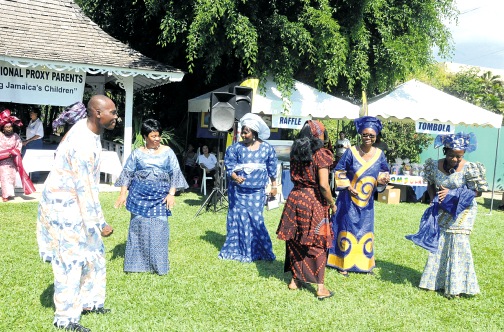
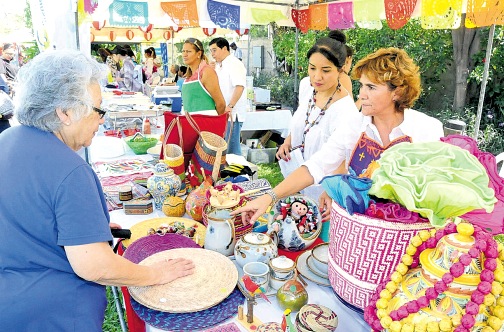
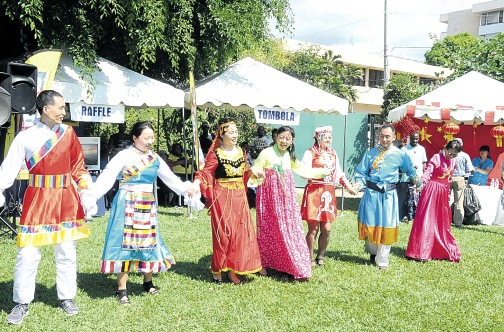
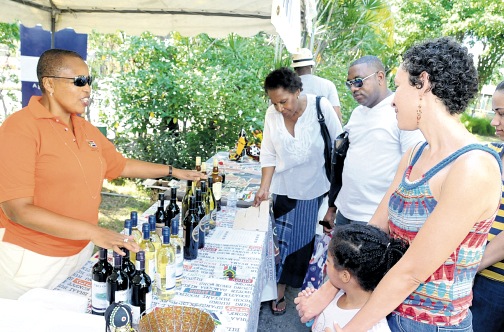
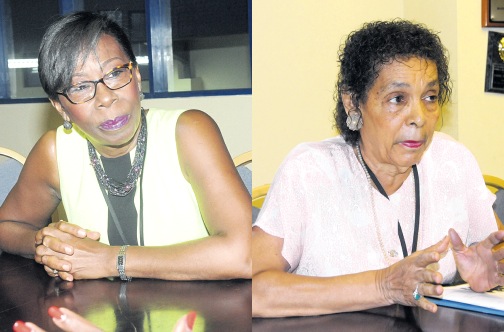
Tonka
Lovely article, well done all 🙂